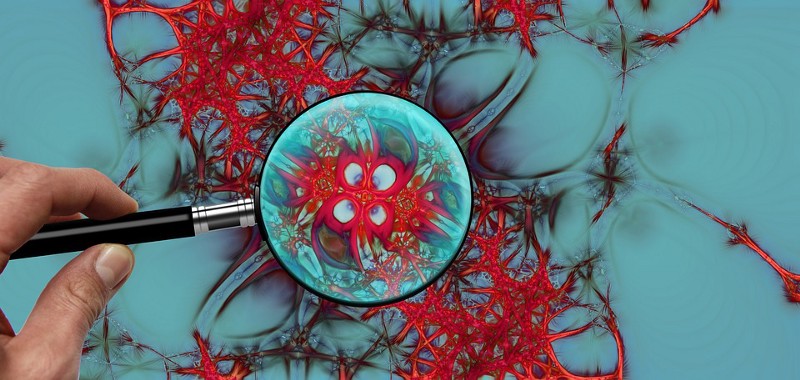
Our ability to move, to breathe, and even to understand reality as we know it is affected by one thing: our central nervous system.
The central nervous system is the connective group of nerve fibers that operate throughout the body, aligning both cognitive and physical bodily needs and functions between the brain, the spinal cord and the nerves that extend through each limb. This means that the central nervous system is responsible for movement, but what you may not know is that it is also responsible for a number of different functions that allow us to survive each and every day.
The role of the nervous system in the maintenance of homeostasis, or balance and calm in the body so that it can operate normally, is its key role. The autonomic nerves control unconscious processes such as breathing, the heartbeat, and digestive processes. The sympathetic nervous system allows us to process emotions on a somatic level. For example, the sweat glands are controlled by the sympathetic nervous system, so moments of strong emotion can be an indication of psychological or physiological arousal. All together, therefore, maintenance of homeostasis is made possible by the regulation of, most significantly, the autonomic nervous system, but also by the way in which the body responds to stimuli through its nervous system responses. Even blood pressure is regulated by the autonomic nervous system.
Excess hormonal and chemical stress can lead to a lack of homeostasis in that these systems may act to try and compensate for challenges to the autonomic nervous system. When we’re stressed, the central nervous system sends signals to increase our hormonal response, sending floods of adrenaline through our bodies so that we can fight or flee. Over the course of time, this flooding effect can lead to a range of diseases, both physical and mental.
That’s why new research into using cannabidiol (CBD) for pediatric central nervous system tumors, schizophrenia, and even hard-to-treat osteoarthritic pain is on the increase.
As I’ve frequently shared with you in this blog, CBD is the master regulator, helping our central nervous system to rest, and for our bodies to operate in homeostasis. The latest experimental research shows that CBD may be the key to ensuring that we are able to shift health outcomes for major diseases like these.
Let’s take schizophrenia as an example. Most researchers believe that schizophrenia is a brain disorder that arises from a combination of factors, including heredity, abnormal brain development, and stressful life experiences. This suggests an atypical development of the central nervous system over the course of a lifetime. There are three major types of schizophrenia: paranoid, disorganized, and catatonic, and therefore symptoms range from agitation, confusion, and fear, and often complex delusions or highly inappropriate emotional responses, to disturbed motor activity and almost comatose behaviors. A striking feature of this condition is waxy flexibility, in which the person maintains positions into which he or she has been manipulated by others. Problems in the nervous system such as this indicate the involvement of brain chemistry as well as brain structures.
What CBD can do, as a neuromodulator, therefore, is to decrease these neurodegenerative effects by opening up pathways for the body’s neurotransmitters to work better.
What this means is that, instead of shutting down, the body will be able to send its signals to the brain and vice versa, easing movement and mental health at the same time. CBD can have extremely positive effects on patients with schizophrenia who have had difficulties with standard pharmaceuticals, according to this research, and according to new World Health Organization standards. Similarly, because central nervous system tumors have their own cannabinoid receptors, using CBD can help doctors get cancer-fighting drugs to their intended destination. Pain receptors along the central nervous system are similarly able to be targeted using CBD as a key to the doorway.
Opening doors to health is what CBD does best.
Within this master signaling system, our bodies can produce chemicals that mirror the plant chemicals found in cannabis. We use these chemicals to calm our central nervous systems, but CBD also lets in other chemicals that can help with repair work at the same time. This makes it more likely to recover from illness faster by opening up those doors to shifts in our bodies and minds.
I can’t wait more more research to emerge that shows how can CBD calm and sooth the nervous system. We’ve only just begun.
-Klee
1 Dorris, K., Hemenway, M., Madden, J., Mulcahy-Levy, J., Ambruso, D., Vibhakar, R., & Foreman, N. (2016). QOS-54 use of cannabinoids in the pediatric central nervous system tumor population. Neuro-Oncology, 18(Suppl 3), iii157.
2 Crippa, J.A., Zuardi, A.W., & Guimaraes, F.S. (2018). 17.4 Possible mechanisms involved in the antipsychotic effects of cannabidiol (CBD). Schizophrenia Bulletin, 44(Suppl 1), S28.
3 Philpott, H. T., O’Brien, M., & McDougall, J. J. (2017). Attenuation of early phase inflammation by cannabidiol prevents pain and nerve damage in rat osteoarthritis. Pain, 158(12), 2442.
4 Rolls, E., Loh, M., Deco, G. & Winterer, G. (2008). Computational models of schizophrenia and dopamine modulation in the prefrontal cortex. Nature, 9, 696–710.
5 World Health Organization. (2017, November 6–10). CANNABIDIOL (CBD) Pre-Review Report. Geneva: Expert Committee on Drug Dependence.